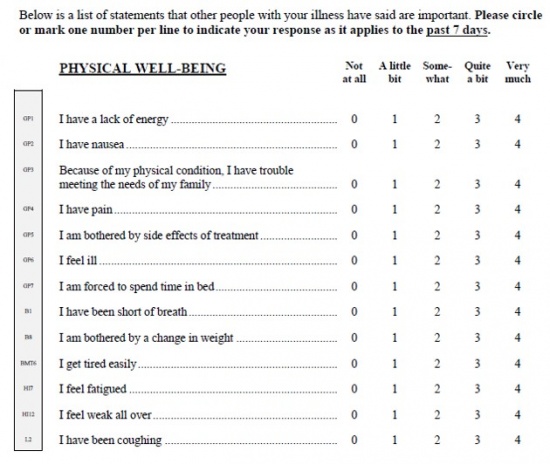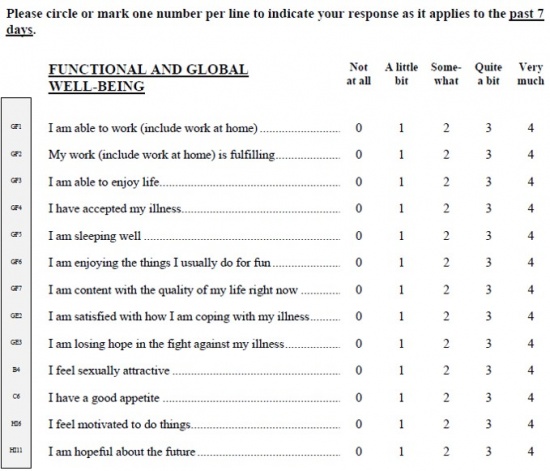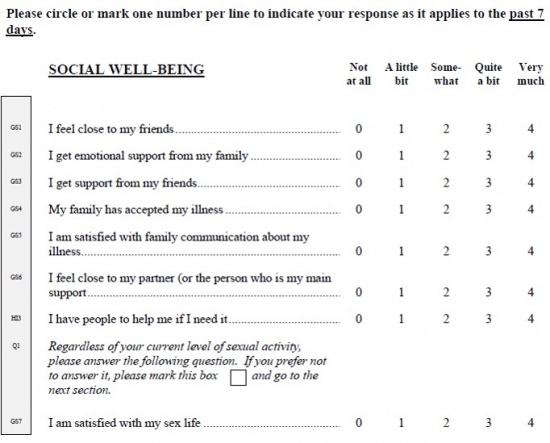Functional Assessment of HIV Infection (FAHI)
Original Editor - Ajay Upadhyay
Top Contributors - Gayatri Jadav Upadhyay, Ajay Upadhyay, Admin, Kim Jackson, WikiSysop, Lauren Lopez and Nupur Smit Shah
Objective[edit | edit source]
The Functional Assessment of HIV Infection (FAHI) is HIV-specific tool. The FAHI was originally developed using the Functional Assessment of Cancer Therapy, which measures generic and disease-specific HRQOL for patients with such chronic diseases as cancer. FAHI is used for measuring Quality of life of People living with HIV.[1]
Intended Population[edit | edit source]
People living with HIV.
Method of Use[edit | edit source]
The FAHI evaluates physical well-being, functional and global well-being, emotional well-being/living with HIV, social well-being, and cognitive functioning. It yields a total score and individual subscale scores.
Reference[edit | edit source]
Evidence[edit | edit source]
The FAHI has good psychometric properties and is available in 10 languages. Although it has not been used extensively, it has been used to demonstrate significant improvement in HRQOL following treatment of anemia with recombinant human erythropoietin (epoetin alfa) in HIV-infected patients. [2]
References[edit | edit source]
References will automatically be added here, see adding references tutorial.
- ↑ Peterman AH, Cella D, Mo F, McCain N. Psychometric validation of the revised Functional Assessment of Human Immunodeficiency Virus Infection (FAHI) quality of life instrument. Qual Life Res. 1997; 6:572-584.
- ↑ Abrams DI, Steinhart C, Frascino R. Epoetin alfa therapy for anaemia in HIV-infected patients: impact on quality of life. Int J STD AIDS. 2000;11:659-665.











